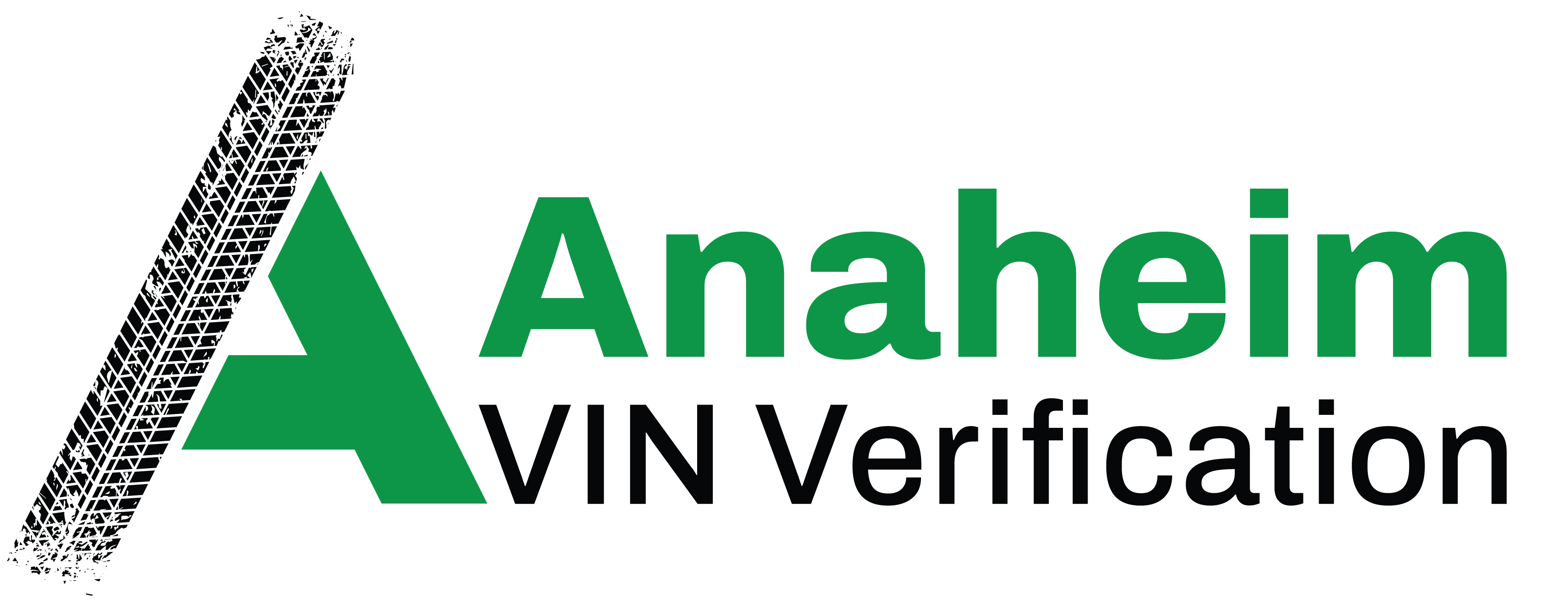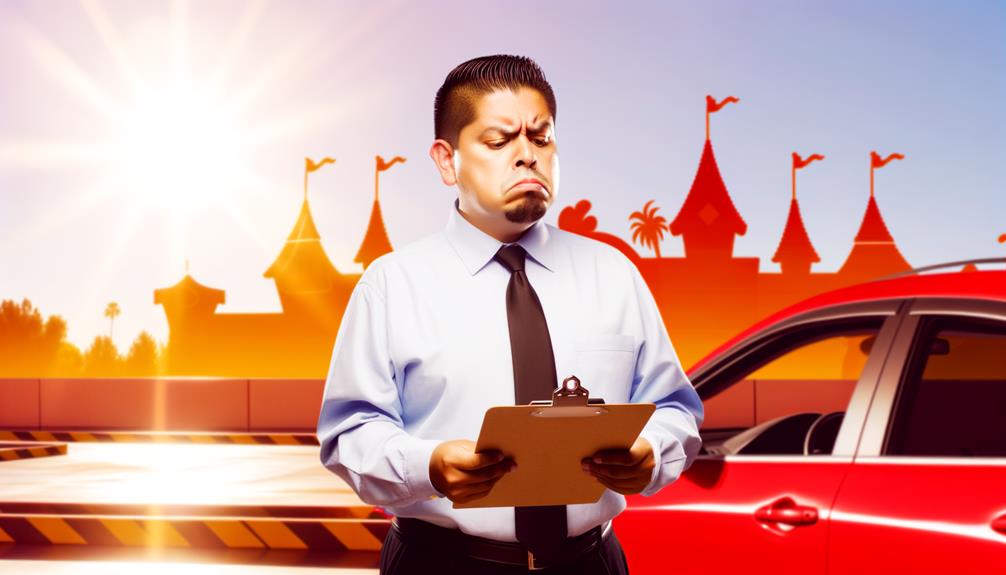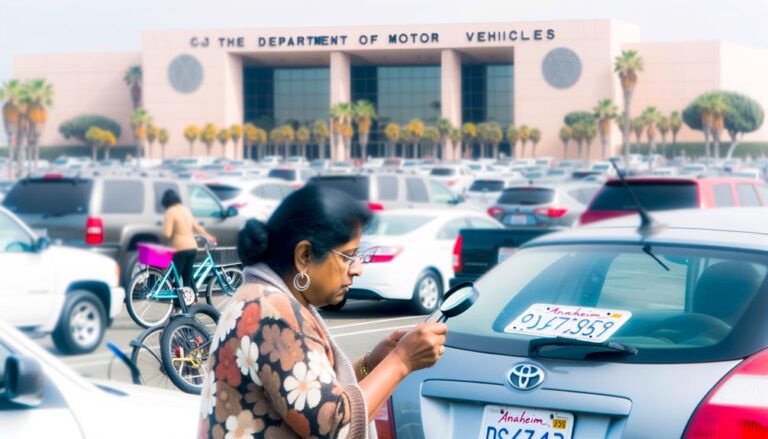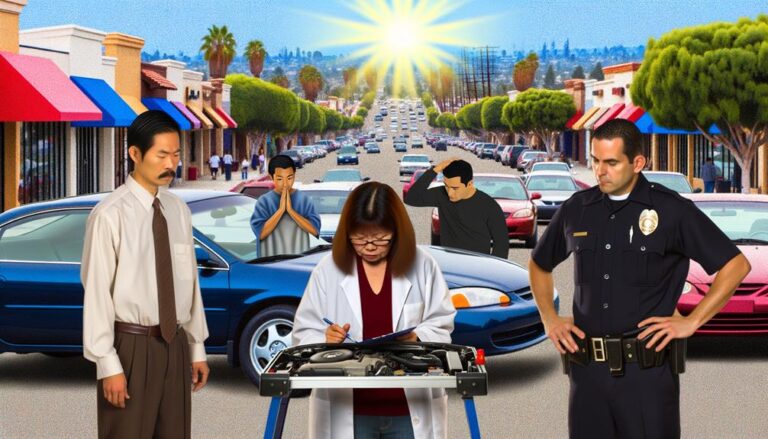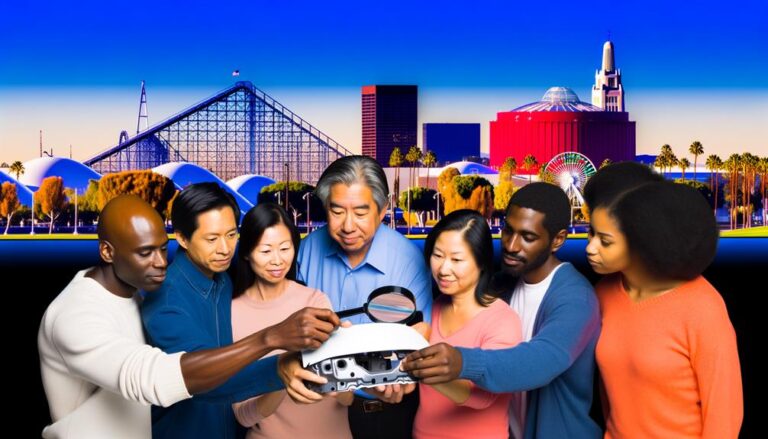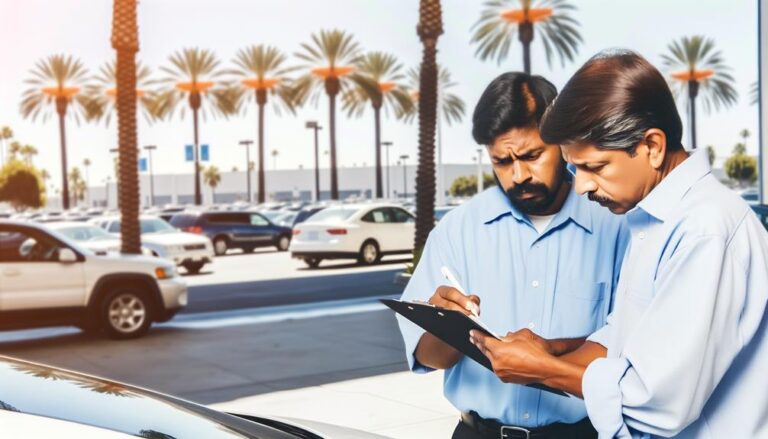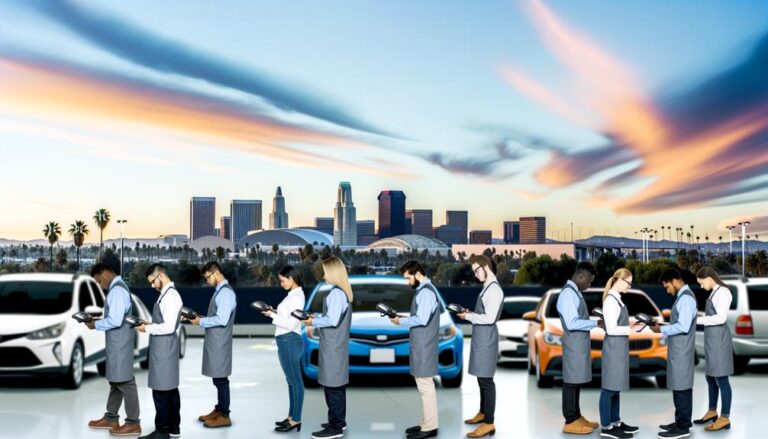What to Do If Your Vehicle Fails VIN Verification in Anaheim
When your vehicle fails VIN verification in Anaheim, you're likely facing a mix of confusion and frustration. First off, don't panic; you're not alone in this. The key is understanding why the failure occurred. Was it a mismatch in documents, or perhaps an error in the VIN itself? Start by checking the details against your vehicle's paperwork—any discrepancy here can be the culprit. After identifying potential issues, you'll want to explore what steps to take next. This might involve a simple fix or a deeper investigation. But where do you go from there? Keep in mind, the path you choose could significantly impact the outcome.
Understanding VIN Verification Failure
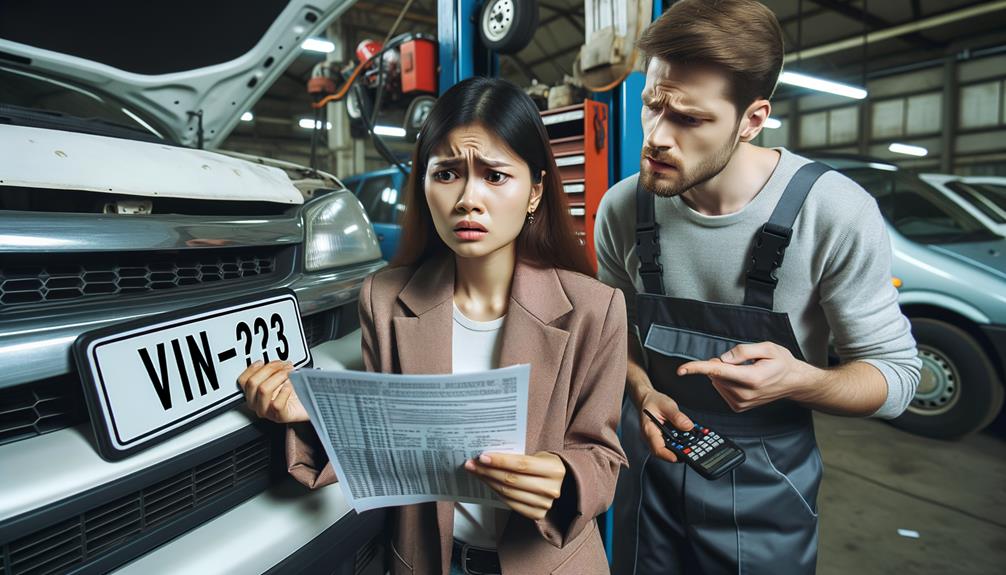
When your vehicle fails VIN verification, it often signals a mismatch between the VIN and official documentation, raising concerns about potential fraud or theft. This failure can restrict your freedom to drive and use your vehicle as you please, tethering you to bureaucratic red tape. Understanding why VIN verification failures occur is crucial in safeguarding your right to mobility and ensuring that your vehicle conforms to legal standards.
VIN verification failure occurs if the vehicle identification numbers on your vehicle don't match the title or supporting documents. This discrepancy can be a red flag for DMV registration processes, hinting at possible illicit activities like vehicle theft or fraud.
Additionally, if your vehicle lacks a Federal Certification Safety Label and was manufactured post-1980, it won't pass the verification. This label is vital as it confirms that the vehicle meets specific safety and emission standards mandated federally.
Vehicles classified as revived salvage or junked in California also face barriers to verification. Similarly, motorcycles with engine swaps or incomplete documentation are prone to fail the verification process.
Before attempting the DMV registration, it's essential to ensure all vehicle identification marks are accurate and that your vehicle adheres to the necessary Federal Certification standards.
Immediate Steps After Failure
If your vehicle fails VIN verification, immediately gather all relevant documents like the vehicle title and previous registration to clarify discrepancies. This initial step is crucial in understanding why your verification didn't go smoothly. You're in the driver's seat here, and having these documents at hand will help you navigate the next steps with ease.
Next, contact the agency or service that handled your VIN verification. They'll provide specific details on why your vehicle failed and guide you on what needs fixing. This could be anything from locating hidden VINs to addressing missing or damaged safety labels. Remember, knowing exactly what went wrong is key to setting it right.
Don't hesitate to seek help from local bonded vehicle verifiers, especially if the path forward isn't clear. These professionals are well-versed in the nuances of VIN verification and can offer alternative solutions that comply with California regulations. Their support can be invaluable in avoiding any further registration delays.
Documentation Requirements

To successfully complete VIN verification in Anaheim, you'll need to present the vehicle's title along with any other documents that prove ownership, such as a bill of sale or previous registration. This documentation ensures that you maintain your freedom to use and manage your vehicle without any legal hitches.
Ensure that all documents are current and accurately reflect your vehicle's details. The VIN should be clearly visible and match the information on your documentation. If there's any damage or if the VIN isn't easily readable, you might need to bring additional proof like photographs or detailed receipts that outline any work done on the vehicle, especially in areas where the VIN is located.
Having your current registration ready is also crucial. It demonstrates that your vehicle is compliant with state regulations, paving the way for a smoother verification process. Remember, your driver's license or state ID must be on hand to verify your identity.
This thorough preparation not only streamlines the process but also reinforces your right to operate your vehicle freely, ensuring that all legal requirements are met and keeping you on the right side of state regulations.
Re-Verification Process
Once you've gathered all required documents and addressed any issues, you're ready to schedule a re-verification for your vehicle.
Choosing a mobile service for this task provides the flexibility and convenience you need. You're no longer tied down to the restrictive hours and possible long lines at the California DMV or CHP office. Mobile services allow you to have your VIN verified at a location and time that suits your schedule.
When setting up your re-verification, it's crucial to ensure that your vehicle complies with all California regulations. This step is key to sailing through the process without a hitch. Be prepared to present your proof of ownership, previous inspection reports, and any other documents the verifier might request. Remember, the goal is to demonstrate that all previous concerns have been properly addressed.
Also, keep in mind the associated fees for re-verification. Prices can vary, especially with mobile services, which can range from $67 to $147. Make sure you confirm the cost beforehand to avoid any surprises.
This approach not only streamlines the process but also puts you back in the driver's seat, ready to hit the road with confidence.
Legal Implications
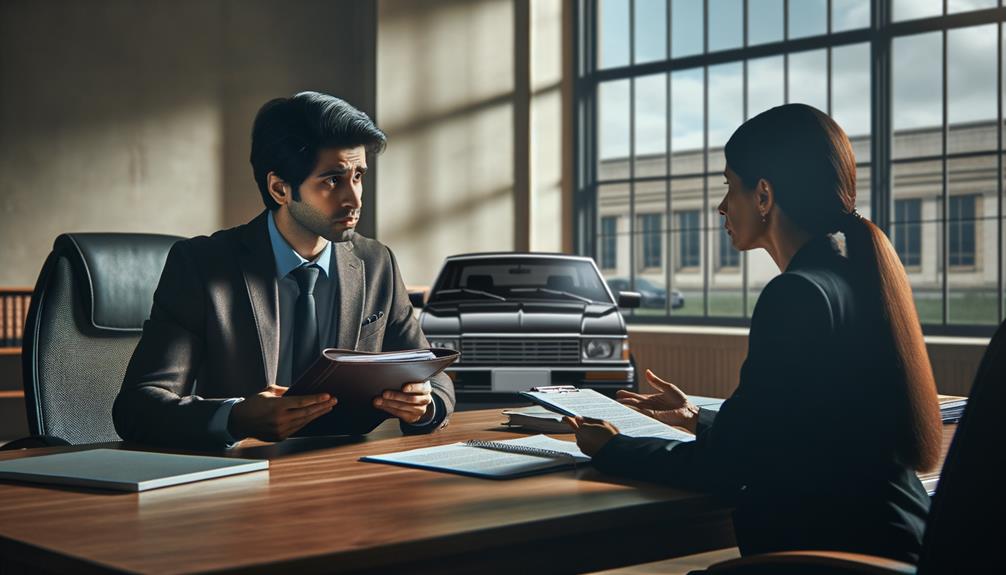
Failing VIN verification means you can't register your vehicle in California, as adhering to DMV regulations is essential for legal road use. Without this step, you're stuck in a bind where your freedom to drive as you please is curtailed.
The legal consequences can escalate quickly, from fines to potential impoundment if your vehicle is tagged as non-compliant, especially for revived salvage or junked statuses. Legal trouble doesn't stop at fines; you're also accountable for any past discrepancies like registration lapses or violations tied to the vehicle. This can open a can of worms with law enforcement, dragging you into deeper legal scrutiny.
It's imperative to tackle VIN verification issues head-on to prevent these consequences. Remember, the role of vehicle verifiers is crucial here—they're your first line of defense in ensuring your vehicle meets all DMV regulations.
Moreover, failing to clear VIN verification can stall any plans you have for selling or financing your vehicle. This isn't just a minor hiccup; it's a blockade to transferring ownership legally. Engaging actively with DMV officials and understanding the necessary steps to regain compliance is your best strategy to navigate these legal complexities and reclaim your freedom on the road.
Expert Assistance Options
If your vehicle doesn't pass VIN verification, you can turn to local experts for precise guidance on rectifying the issue. In Anaheim, you have access to a variety of expert assistance options that offer the freedom to choose who can best address your needs. Engaging with a licensed vehicle verifier can be a wise move. These professionals are well-versed in the nuances of the DMV database and can provide tailored advice based on your specific circumstances.
You might also consider consulting the Fullerton Police Department for their VIN verification services if your initial attempt didn't pan out. They're equipped to handle such cases and can offer alternative solutions that align with legal standards.
Documenting the reasons for the verification failure is crucial. Collect any relevant materials or evidence before consulting an expert, as this information will be vital in navigating the re-verification process.
Lastly, don't hesitate to reach out to licensed DMV business partners in the area. Their specialized support is designed to tackle VIN verification issues efficiently, ensuring you meet all necessary requirements to get your vehicle back on the road legally and without further hassle.
Prevention of Future Issues
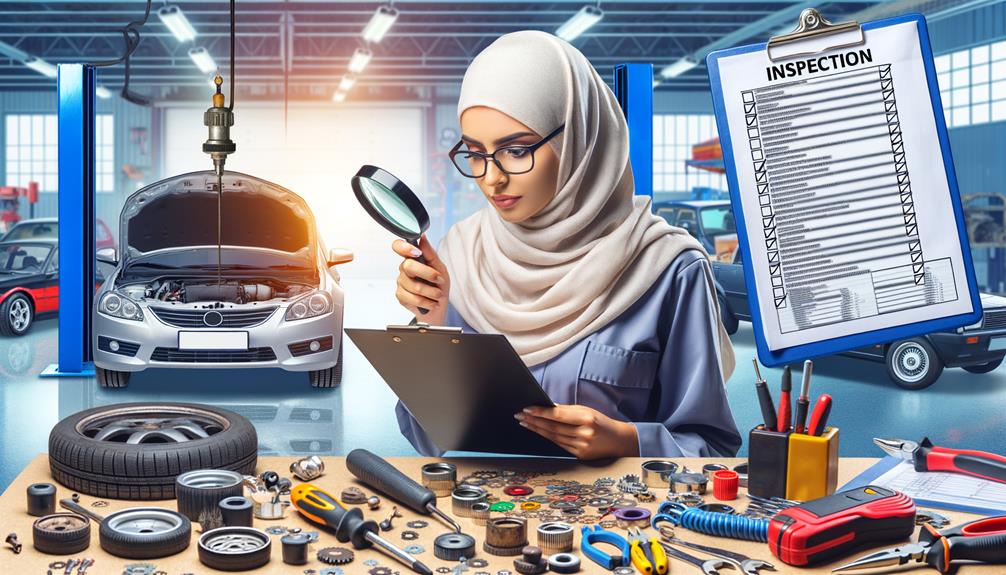
To prevent future VIN verification issues, you should ensure the VIN on your vehicle is clear and unobstructed. Regularly clean the area around the VIN plate, checking for anything that might hide it. It's your right to hit the road without hassles, and keeping that VIN visible is a sure step toward freedom on the highways.
Before you head to VIN verify or use any registration services, inspect your vehicle thoroughly. Make it a habit to check that your vehicle's documents, like the title and registration, accurately reflect the VIN. This small step can save you a ton of time and keep you cruising without interruptions.
Get to know the specific California VIN requirements, especially if you're riding with an older model. Knowledge is power, and understanding these rules means you're less likely to face surprises when it's time to verify.
Lastly, don't hesitate to reach out to local bonded vehicle verifiers or law enforcement for advice on where your VIN is located and how to approach verification. Keeping a proactive dialogue with these agencies ensures you're on top of the game, making your registration process as smooth as possible.
Contacting DMV Services
When your vehicle fails VIN verification in Anaheim, contact the DMV to determine the next steps and understand the reasons for the failure. It's crucial to get the clarity you need to resolve any issues swiftly. By engaging directly with the DMV, you can pinpoint the exact discrepancies causing the verification failure and learn how to address them effectively.
You might need to provide additional documentation, such as your vehicle's title or prior registration details. Make sure you've got all relevant information handy—like the VIN, make, model, and any previous verification attempts—when you reach out. This preparation will speed up the process and help the DMV assist you more efficiently.
Don't hesitate to visit your local DMV office or give their customer service line a call. They're equipped to guide you through the necessary steps to rectify your registration and get your vehicle compliant.
If you prefer a more convenient option, look into mobile VIN verification services available in Anaheim. These services can provide on-the-spot assistance and potentially expedite the resolution of your issue, keeping you moving towards freedom without unnecessary delays.
Additional Resources Available
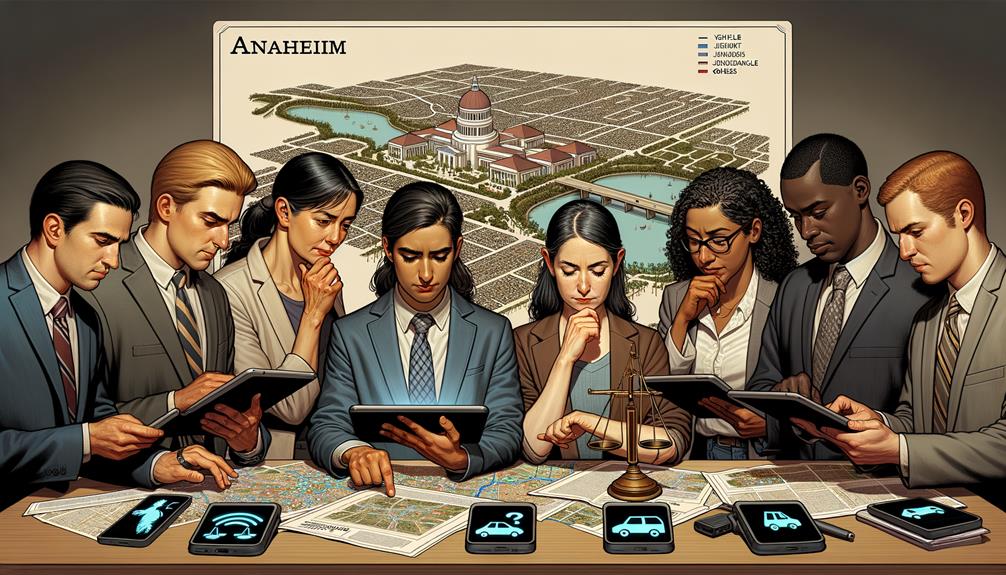
Beyond contacting the DMV, you can explore additional resources to help with VIN verification issues. One key alternative is the Fullerton Police Department, which offers VIN verification services. This could be a game-changer if you're stuck or need a fresh set of official eyes on your issue.
Don't forget to use every tool at your disposal. Documenting hidden VIN locations on your vehicle with mirrors or cameras can provide crucial evidence that streamlines the verification process. This proactive step not only prepares you better but also signals your commitment to resolving the issue efficiently.
Furthermore, tapping into community forums can be incredibly beneficial. Here, you'll find people who've navigated similar challenges, sharing their personal experiences and tips. These insights can be the lifeline you need when you feel like you're hitting a wall.
Lastly, if you need more specialized help, reach out to Quick Auto Tags at 951-409-9091. They're not just about VIN verification; their licensed registration services cover a broad spectrum, ensuring you have all the support you need. This blend of community wisdom and professional aid puts you in a strong position to tackle any VIN verification hurdles head-on.
Frequently Asked Questions
How Long Does CHP VIN Verification Take?
CHP VIN verification usually takes about 30 minutes to an hour. It's best to make an appointment to avoid longer wait times. They'll check if the VIN matches your vehicle's documentation.
What Do They Check for VIN Verification in California?
In California, they'll check your vehicle's year, make, model, and ensure the VIN matches your documents. They also verify the federal certification label, odometer reading, and the number of wheels and axles.
What to Do if My VIN Is Invalid?
If your VIN's invalid, first verify its visibility and condition. Contact the DMV or a licensed verifier for resolution steps. Gather all related documents to support your case and correct any discrepancies.
Does AAA Do VIN Verification in California?
Yes, AAA does perform VIN verification in California. You'll need to visit their locations, as they don't offer mobile services. Be aware, they might require multiple VIN spots on older vehicles.
